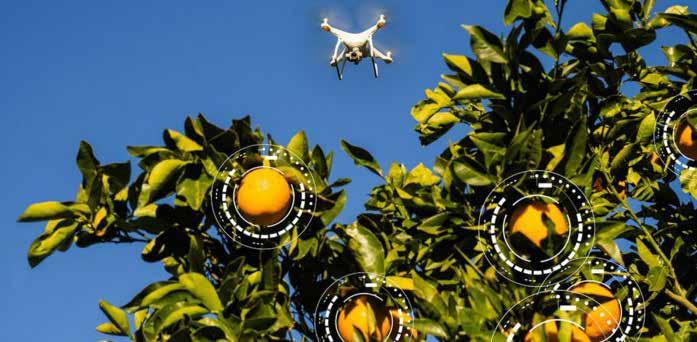INDUSTRY
SA MINES INVESTING AN AVERAGE OF R111M ANNUALLY IN DIGITAL TECHNOLOGIES - REPORT The average investment in digital technologies by South African mines is R111-million, so says a report released in February by Minerals Council South Africa in collaboration with PwC.
T
he report is based off a study that Minerals Council South Africa and PwC conducted between December 2019 and August 2020 by surveying 23 senior managers from 19 mining companies. Minerals Council South Africa CEO Roger Baxter said the purpose of the study is to gain an understanding of the adoption of Fourth Industrial Revolution (4IR) technologies within the South African mining industry, and to provide guidance on the opportunities and challenges associated with digital transformation. The council believes regular reports like this will help decision makers from all mining stakeholders make better and faster decisions which will enhance the global competitiveness of mining. “Mining is an integral part of how humans, hand-in-hand with 4IR technologies, will build a socially just world and keep within its ecological limits. Using 4IR technologies to enable a more modern mining sector, South African mining will become globally competitive, attract the best talent, and ultimately contribute even more as we re-imagine our economy and society,” said Baxter. While the average investment in digital technologies by the surveyed companies amounted to R111-million a year, the study found that a quarter of the respondents were spending an average of R116-million
52
SYNAPSE | 1ST QUARTER 2021
per annum on digital technologies. “The scale of their spending suggests mining companies are coming out of the starting blocks at speed and using their traditional approach of net present value to motivate these investments. With the majority of respondents in the intermediate stages of their digital journey, we expect average investment size to increase in the coming years as the benefits of 4IR transformation become clear to stakeholders,” says the report. The study found that at least 37% of respondents, which were classified as “curious investors” did not have a clear 4IR strategy and were allocating less than 0.15% of their expenditure or an average of about R13-million per annum to experiment with digital transformation. On the other hand, 38% of respondents stated they had identified areas of their operations which they wish to impact with 4IR tech. This group invested between 0.16% to 0.3% of turnover or on average about R95-million per annum on digital technologies. “Their larger investment numbers are accompanied by their having more active roles in OEM product development. Forty percent of respondents in this category’s say they are taking a direct role in influencing OEM new product development. The remainder say they are taking active, but indirect roles such as participat-
ing in OEMs’ advisory boards and pilot programmes,” the report states. A quarter of the respondents were found to be investing more than 0.3% of their turnover or on average about R116-million per annum on digital programmes. “These companies typically have lower risk aversion and are the leaders in 4IR. They have been on the journey longer than their peers in most cases and have a clear vision of what areas will be impacted together with a clear investment strategy in each area of their business. Confident investors have mature digital programmes and are actively seeking to innovate. All of them can tie their larger investments to larger expectations for improvement. Their digital initiatives are business case driven and measured against predicted returns in a pilot environment prior to roll-out,” says the report. AI lagging behind IoT, but more piloting it The report suggests companies are prioritising technologies that connect people and assets to provide insights, as well as those that connect machine to visualise data (condition monitoring). The study found that the 4IR technologies currently being used the most in South African mines are condition monitoring (79%), connectivity and Industrial Internet of Things (IIoT) (58%), and Manufacturing execution systems (42%).





























